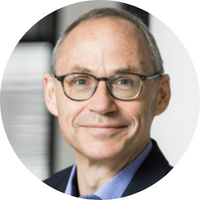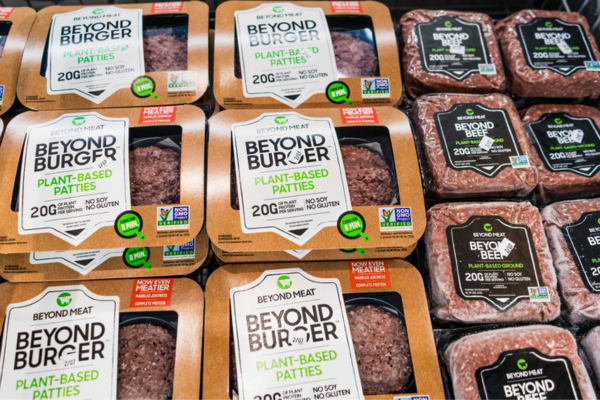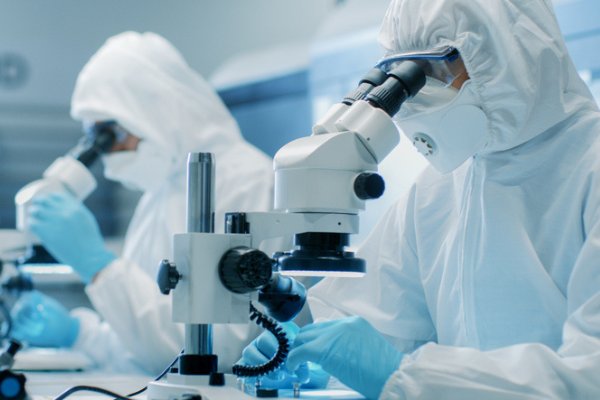
Key Takeaways:
- Technology trends Eckes is following and how they may impact his work at BASF
- Non-technical skills Eckes highly values amongst his peers
What technology trends are you following most closely with an eye toward how they may impact the work of your BASF teams?
Every R&D leader should ask themselves this question. From my perspective nothing has changed R&D more than digitalization, modelling and artificial intelligence. This transformation will continue in all fields of chemical research. Today, digital technologies require different skill sets in the R&D phase. Digitalization has also led to an acceleration of the R&D process and more targeted approaches.
What motivated you to leave Frankfurt, Germany - where you had obtained your Ph.D. in organic chemistry - to pursue your postdoctoral chemistry studies at Harvard?
During my graduate studies I got more and more interested in the interface between chemistry and biology. Therefore, I wanted to explore during my post doc the field of chemical biology that was emerging. Unfortunately, this interdisciplinary field was underdeveloped in Germany and I therefore joined the group of Gregory Verdine, Ph.D. at Harvard. He was a young assistant professor at that time and is now regarded as a pioneer in the field of chemical biology. This was a wonderful experience that I will always treasure.
In a recent ACS Boss Talk, Patricia Hubbard, Senior VP and CTO at Cabot Corp., said the following: “This is the real challenge for Cabot and any company over the long term: How to strike the right balance between keeping a strong core while also building from positions of strength to progress into new areas. It’s hard to get right, but vitally important.” You don’t find the answer to that question in a chemistry lab, do you? What prepared you to tackle challenges like that?
I have spent 20 out of my 28 years with BASF in diverse R&D leadership roles. I love R&D. I love R&D because it is intellectually challenging and satisfying. But most importantly I love R&D because we are developing solutions to address important global problems. This has stimulated me to always look for the next big opportunity. The real motivator is the impact that our innovations are having.
What non-technical skills do you most highly value among your scientists at BASF?
Every innovation has a disruptive component. This requires change, which makes successful innovation so challenging. In this context I see two skills as very helpful: Resilience and the ability to inspire others for a new idea.
Chemists and chemical engineers operate in a dynamic and challenging workplace, particularly in a company such as BASF. In light of this, what advice do you have for scientists to maximize their ability to advance their careers, and the interests of the companies they support?
My first advice would be do not focus too much on the advancement of your career. People do best at what they like to do and what they are passionate about. When you enjoy what you do there is a high likelihood that you will be successful. Therefore, follow your heart and your gut. And there is one additional piece of advice I would like to offer: Seek out the boss that believes in you and provides you with real challenging opportunities. These opportunities foster personal growth and great engagement.
Ten years from now, would you expect the number of chemists in your BASF groups to increase, decrease, or remain the same?
Chemistry is a true enabler tackling many challenges that we face today be it providing enough healthy food and energy for a growing population to only name two. There are many formidable challenges that are waiting for a solution. Therefore, I do see a bright future for chemists.
How have your parents influenced your leadership style?
This is a very personal question and not so easy to answer. I am very thankful to my parents that they provided me with a set of values that have certainly formed my character; values such as honesty, trust, respect and openness. These values have always been foundational for my leadership style. For me developing myself as leader has always been very important. In this regard nothing has helped me more than employee and peer feedback. These colleagues have provided me with great ideas on how to improve my leadership style.
Let’s say the weekend has arrived. Are we more likely to catch you reading a business publication like Harvard Business Review, or a technical publication such as the Journal of Organic Chemistry? Or neither?
On weekends I love quiet time. Sports are a real important part of my routine be it running, cycling, swimming or CrossFit. Any reading is mostly focused on history and biographies. And the highlight of a weekend would be to attend a performance of my wife or my three kids. They are all amazing singers and their voices create happiness and joy in me.
Based on your BASF experience, name something that Germans generally do better than Americans, and something Americans generally do better than Germans.
Now it is getting political and I certainly do not want to reinforce any stereotypes. There is no “standard” German or American way. Nonetheless, there seems to be certain patterns. Germans are great in planning and precise execution. Americans tend to be visionary, open-minded and just “try-it”.
Bioscience research in the digital age vs. bioscience research prior to the digital age: What are the major differences?
It is like day and night. I started my bioscience career at night. The innovations that we are developing today in the bioscience space at BASF are just not possible without digitalization. The discovery of a new sustainable crop protection product requires analysis of massive screening data and molecular modeling to optimize the active ingredient and minimize any unwanted side effects. And artificial intelligence tools are more and more integrated in bioscience R&D projects. Digitalization accelerates and makes R&D more targeted. Therefore, it is very important from my perspective that more digital elements are incorporated into today’s graduate and undergraduate curricula.
BASF is committed to sustainability, environmental protection, and social responsibility. But some parts of the world value those goals more than others. Does that make a difference in how BASF goes about its global business?
It is certainly true that not all countries are at the same level or moving at the same speed. Nonetheless, the overall trajectories are all pointing in the same direction. Many of the problems are of a global nature and we see that new sustainable solutions are adopted around the globe.
It’s 2040. What’s providing global humanity with the greatest challenge? Access to food? Water? Energy? Something else?
Sufficient supply of healthy food, enough clean water and affordable, clean energy are certainly among the most important challenges where chemistry will be a key enabler for sustainable solutions. In addition, massive urbanization and the need for environmentally friendly mobility would be on my list. As I mentioned earlier, there is plenty of work for us chemists.
Who has the more passionate love affair with the automobile: The Germans or the Americans?
I am not sure who has more passion for cars. Individual mobility is important in both countries today. But there are geographic and cultural differences so that the passion comes in different flavors. A pickup truck is a great option if you have plenty of space. A car that drives 120 mph can be exhilarating on an empty Autobahn. Looking into the future I believe that mobility will fundamentally change globally in the next decade with more autonomous and electric vehicles on our streets. I can see already today that for my kids – those living in Germany and those living in the United States – that the car is not as important for them as it was for me. But people do not want to compromise on performance and flexibility. That requires innovative new battery materials and also a dedicated infrastructure.

Dr. Peter Eckes has over 25 years of experience in the chemical industry. He leads BASF’s global competence center for life sciences headquartered in Research Triangle Park (RTP), North Carolina. In this role, he drives innovative sustainable solutions for agricultural, food and industrial applications for a better life and improved environment.
Peter completed his PhD in organic chemistry in 1990 at the University of Frankfurt, Germany, and pursued his postdoctoral studies at the chemistry department of Harvard University in Cambridge, Massachusetts. He joined BASF in Ludwigshafen, Germany, in 1992 and was named Assistant to the Chief Technology Officer in 1994.
In 1997, Peter joined the BASF Chemical Intermediates division as Technical Manager of Production at the company’s operating site in Geismar, Louisiana. Two years later, he became Marketing Manager for BASF’s regional Intermediates business in Mount Olive, New Jersey.
In 2000, Peter returned to Ludwigshafen to take on the role of Vice President of New Business Development for the global Chemical Intermediates division. In 2002, he joined BASF’s Crop Protection unit as Senior Vice President of Global Research and Development, based in Limburgerhof, Germany. From 2009 to 2014, he served as President of BASF Plant Science Research in RTP, North Carolina.
This article has been edited for length and clarity. The opinions expressed in this article are the author's own and do not necessarily reflect the view of their employer or the American Chemical Society.
Copyright 2019 American Chemical Society (All Rights Reserved)








